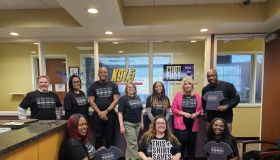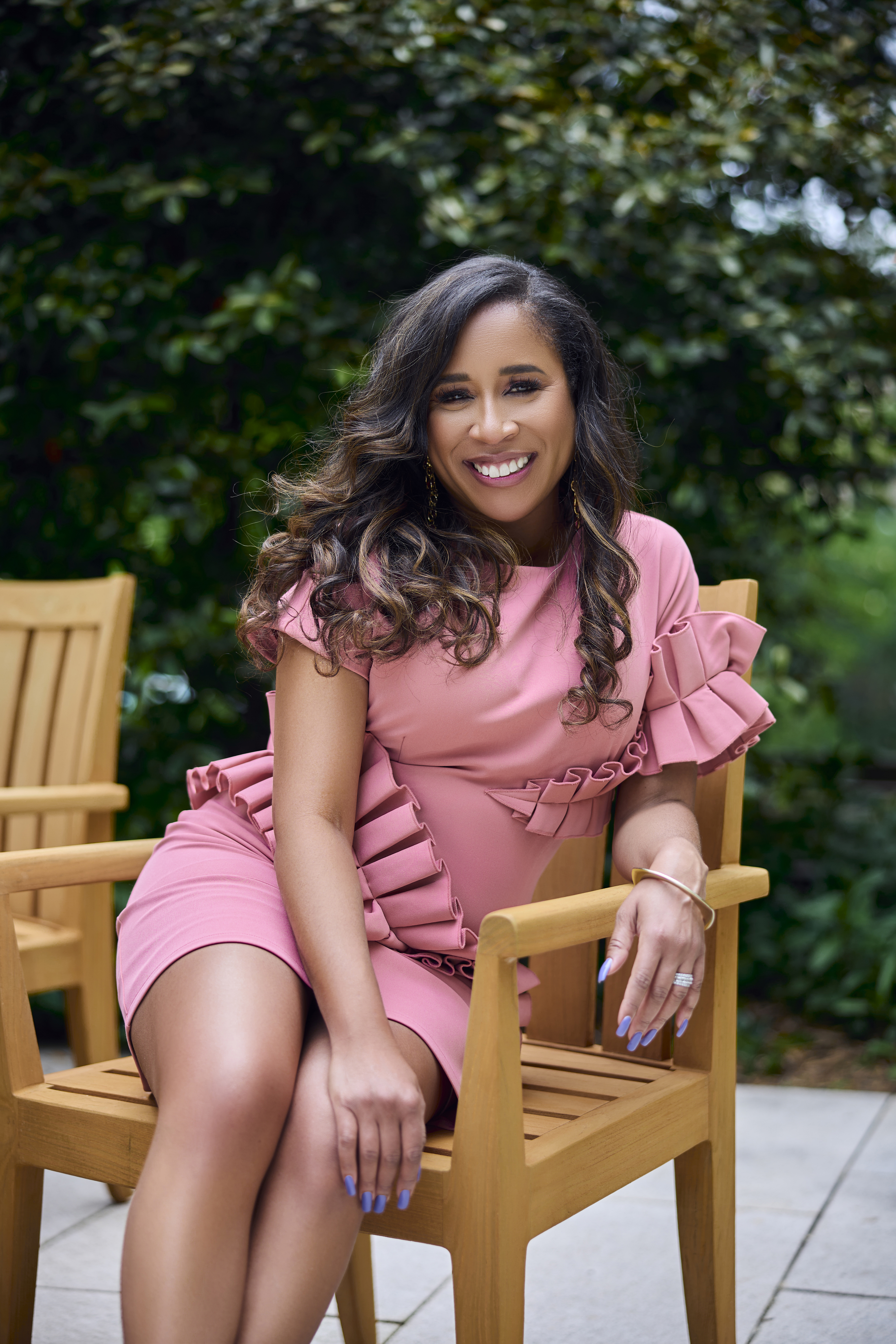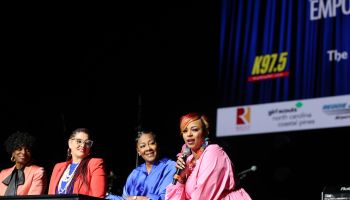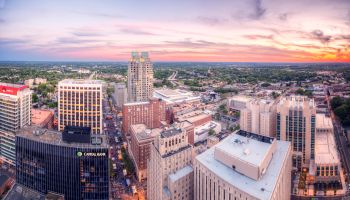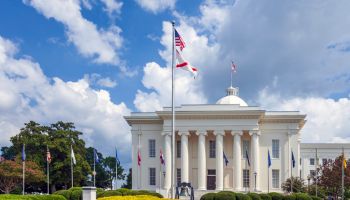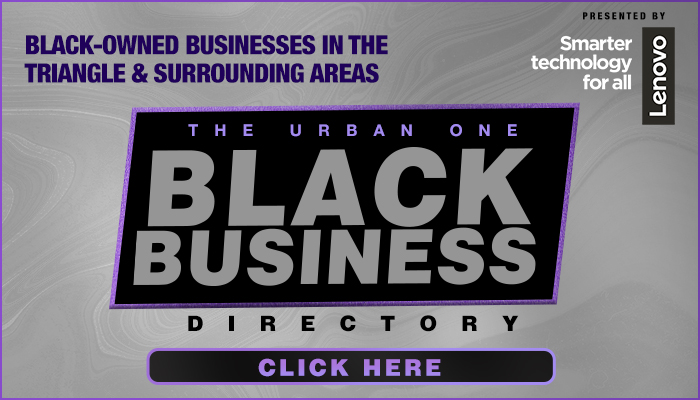Celebrate Black History Month In Raleigh
Share the post
Share this link via
Or copy link
This February, check out the programs, exhibits, and historic landmarks the city has to offer that honor the contributions and history of African Americans in Raleigh, most of which are free and a few are even available year-round.
Black History Month Events and Exhibits
Black History Month 2024
February, Various Times, Cost: Free
John Chavis Memorial Park, 505 Martin Luther King Jr Blvd, Raleigh, NC 27601
John Chavis Memorial Park honors the achievements, history, and heritage of African American trailblazers. In honor of Black History Month, JCMP will host a series of events that celebrate the legacy of the African American Experience. All events are at no cost.
Weekday Tours of Pope House Museum
Related Stories
Fridays in February, 10 a.m. and 2 p.m., Cost: Free (Donations accepted)
Pope House Museum, 511 South Wilmington Street, Raleigh, NC 27601
Come learn about one of Raleigh’s most prominent Black families and one of North Carolina’s first licensed Black doctors! For Black History Month only, the Pope House Museum will do scheduled weekday tours for groups of 3-25.
Visit Martin Luther King Memorial Gardens
Open from dawn until dusk daily, Cost: Free
1215 Martin Luther King, Jr. Blvd, Raleigh, NC 27610
First built in 1975, it is the first public park in the United States solely devoted to Dr. King and the civil rights movement. A 12-ton granite water monument honors the area’s notable pioneers in the civil rights movement.
Raleigh Trolley Celebrates Black History Month
Saturday, Feb. 24 and Sunday, Feb. 25, 1 p.m. and 2:30 p.m. Cost: $12
Mordecai Historic Park, 1 Mimosa St., Raleigh, NC 27604
Join the Historic Raleigh Trolley for this special edition of our popular Black history tour highlighting Oberlin Village. Tours will begin at Mordecai Historic Park and travel to Oberlin, where passengers will disembark for a tour of the Historic Turner House and Oberlin Cemetery and learn about the neighborhood’s history of community and freedom.
Make sure to check back throughout the month as more events will be added.
Historic African American Landmarks
The City owns parks, a cemetery, and other landmarks with significance to the African American community. Below are a few who have made it onto the local, state, and national registers of historic places.
John Chavis Memorial Park and Carousel
505 Martin Luther King Jr. Blvd. Raleigh, NC 27601
Under the federal Works Progress Administration (WPA), Chavis Park was created in 1937 to give black families access to similar recreational opportunities as white families. It attracted black families throughout North Carolina from the late 1930s to the late 1940s. The carousel was installed as one of the main attractions and is one of the few vintage carousels that remain in operation today. The park is named for John Chavis, a black Revolutionary War soldier, who went on to establish a school in Raleigh, where he taught white students by day and black students by night. He also became a Presbyterian minister in 1799. Read more about Chavis Park’s history.
Latta University Historic Park
1001 Parker Street, Raleigh, NC 27607
Rev. Morgan London Latta, a freed enslaved person and teacher, founded Latta University in 1892. At its peak, Latta was home to 26 buildings home and 1,400 students, including orphaned children of former enslaved people. The university operated for 30 years. The Latta residence was the only remaining structure on the site, but it was destroyed in a fire in 2007. The City recently completed a master plan for the park and is working on Phase I implementation. Read more about Latta House’s history.
Mt. Hope Cemetery
120 Prospect Avenue, Raleigh, NC 27603
Mt. Hope, which was established in 1872, is one of the first municipal cemeteries for African Americans in North Carolina. Most sizeable towns in the state opened suburban cemeteries for whites in the post-Civil War era, but very few established municipal cemeteries for freed enslaved people. Several prominent residents are buried there including Rev. G.A. Mial, former enslaved person and educator Lucille M. Hunter, James E. Hamlin owner of Hamlin Drugstore, and Dr. Manassa T. Pope, the first black mayoral candidate in Raleigh. Read more about Mt. Hope’s history.
Pioneers Building at Method Community Park
514 Method Road, Raleigh, NC 27607
The Pioneers Building was the old Agricultural Building of the Berry O’Kelly High School, the first fully accredited and largest rural high school in the state of North Carolina for African Americans. Read more about the Pioneers Building.
Pope House Museum
511 South Wilmington Street, Raleigh, NC 27601
As the only African American house museum in the state of North Carolina, the Pope House offers a glimpse into the life of one of Raleigh’s most intriguing citizens, Dr. Manassa Thomas Pope, who was the only African-American man to run for mayor of a southern capital during the Jim Crow Era. Read more about Pope House’s history
-

It All Started When Nelly Asked For Ashanti’s Autograph: A Relationship Timeline
-

Ashanti Confirms She Is Engaged – And Having A Baby With Nelly!
-
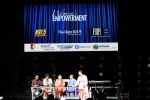
Everything You Missed At Women's Empowerment 2024!
-

Amanda Seales Speaks Her Truth On Shannon Sharpe’s Club Shay Shay
-

Vanessa Williams Preps First Album in 15 Years With New Single, "Legs (Keep Dancing)"
-

Enter ‘The Fun House’ Kid ‘N Play’s Newest Podcast Adventure | Urban One Podcasts
-

Multiple States Working To Ban Popular Snacks Linked To Cancer
-

Shots Fired On Shaw University Campus; Suspect In Custody






